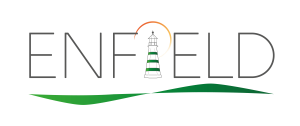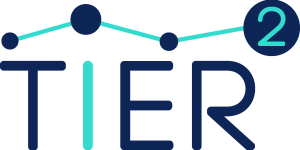Current Projects
European Lighthouse to Manifest Trustoworthy and Green AI
- Time: 2023-2026
- Funding: Horizon Europe (EC)
- Role: Partner
ENFIELD aims to elevate European AI research in the pillars of Adaptive, Green, Human-Centric and Trustworthy AI and advance research in areas of great societal relevance (energy, healthcare, manufacturing, space). The project also wants to contribute to collaboration, education and training, building of networks and the innovation ecosystem.
Nicki Lisa Cole is co-leading the Green AI pillar at Know-Center and contributing to the development of Green AI monitoring metrics.
Enhancing Trust, Integrity and Efficiency in Research through next-level Reproducibility
- Time: 2023-2025
- Funding: Horizon Europe (EC)
- Role: Lead
Reproducibility is often claimed as a central principle of the scientific method. It refers to the possibility for the scientific community to obtain the same results as the originators of a specific finding. Recently, concerns about a “reproducibility crisis” have grown in a variety of disciplines, especially in behavioural and medical sciences. This has been exacerbated by key problems such as a lack of transparency in reporting, data, and analysis, lack of replication studies, publication bias towards reporting of positive results, and a growing awareness of questionable research practices.
Poor levels of reproducibility are seen as a serious threat to scientific self-correction, efficiency of research processes, and societal trust in research results. There is a need to address issues in reproducibility in order to reduce inefficiencies, avoid repetition, maximise return on investment, prevent mistakes, and speed innovation to bring trust, integrity and efficiency to the European Research Area (ERA) and the global Research and Innovation (R&I) system in general.
In response to these challenges, TIER2 will centre epistemic diversity by selecting three broad research areas – social, life, and computer sciences, and two cross-disciplinary stakeholder groups – research publishers and funders to systematically investigate reproducibility across contexts. Through coordinated co-creation with these communities, TIER2 will:
- examine the epistemological, social, and technical factors that shape reproducibility across contexts
- build a state-of-the-art evidence-base on extent and efficacy of existing reproducibility interventions and practices
- co-create techniques of scenario-planning, backcasting, and user-centred design to select, prioritise, adapt, and implement new tools to enhance reproducibility across contexts.
TIER2 will contribute to increasing the re-use and overall quality of research results and consequently boost trust, integrity and efficiency in research.
Open Science Impact Pathways
- Time: 2022-2024
- Funding: Horizon Europe (EC)
- Role: Partner
PathOS aims to collect concrete evidence for the effects of Open Science (OS) practices. The project’s main focus is the identification and quantification of pathways of OS from input to output, outcome and impact. In this investigation of impact pathways enabling factors and key barriers will also be considered. PathOS wants to improve understanding of the implications of OS, provide recommendations, and develop new tools and methods to study causal effects.
To study impacts and causal mechanisms, an approach including six iterative steps will be taken:
- Scope current status in OS research and impact assessment
- Conceptualise model of OS impact pathway
- Quantify: exploring a range of methods
- Operationalise and employ methods for measuring impacts in case studies
- Analyse costs and benefits of specific OS practices
- Validate model of OS impact pathways
Open Practices, Transparency and Integrity for Modern Academia
- Time: 2021-2024
- Funding: Erasmus+ (EC)
- Role: Partner
- Requirements to the Open Peer Review Platform
- Requirements to Updated Courses with New Subjects on Open Science
OPTIMA aims at improving the quality of higher education in Ukraine by increasing the level of academic integrity through bringing open practices and transparency to relevant content and services, as well as through modernisation and internationalization of Ukrainian HEIs. OPTIMA will introduce open practices as a quality assurance (QA) process and IT solutions and international virtual community as a quality assurance mechanism.
The system of higher education (HE) in Ukraine is characterized by serious deficiencies, such as inefficient quality assurance (QA) and low levels of internationalization, which negatively affect educational attainment and reduce the country’s general potential. At the same time, the military conflict in eastern Ukraine is acutely affecting the HE system. Since the beginning of hostilities in the Donbass region, 18 higher education institutions (HEIs) have been moved from the temporarily ceased territories and continue to educate over 40,000 students and employ about 3,500 academic staff. However, problems of quality and integrity remain in the Ukrainian education system, harming society and economy. Misconduct in HE, when students do not properly represent their acquired knowledge because of cheating, plagiarism and ghostwriting, is one of the main problems of the Ukrainian education system. There is, then, a need for development and implementation of innovative QA mechanisms built on academic integrity culture.
Introducing Open Peer Review (OPR) has the biggest potential in Ukraine as it brings transparency to the already familiar practice of academic evaluation and provides hands-on learning opportunities for early career researchers, helping to build new skills under collective mentorship of international experts. OPTIMA will develop and implement an online OPR platform for academic conferences along with an international virtual community of peer reviewers and researchers.
The Open and Reproducible Research group provides expertise and consultation in the field of Open Science (OS) to help the Ukrainian partners absorb best practices. All training courses within the project are created under the supervision of ORRG/TU Graz. Additionally, experts from TU Graz contribute to the development and support of a national platform for OPR including a virtual community, providing expertise in OPR workflows and OS training, through close involvement in the conceptualization and implementation of OPR services. TU Graz is leading activities in work package 1 (“Learning EU best practices”), work package 2 (“Academic courses on Open Science”), and work package 3 (“Web platform for Open Peer Review”), providing expertise from participation in writing “The Open Science Training Handbook” and the development of similar programmes at TU Graz to support best-practice implementation of OS training, teaching, and certification programmes. TU Graz hosts three OS training workshops for project partners (WP1), provides consultation on OPR platform development (WP2), and contributes to OS content for academic courses (WP3).



